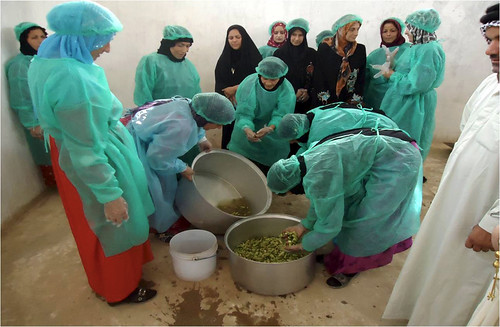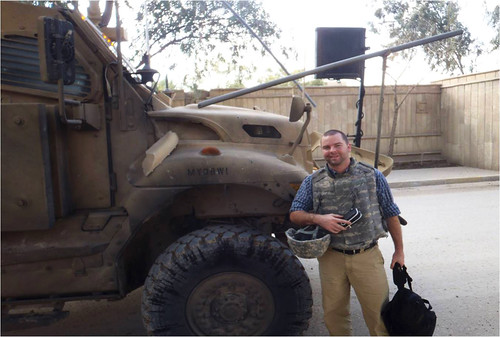
For the past year, Thaddeus White provided education and training to the Iraqi people as an advisor for the Department of Agriculture's (USDA) Foreign Agricultural Service (FAS) in Baghdad.
With degrees in agriculture and extension and experience as an agricultural science teacher and Future Farmers of America (FFA) advisor, White was a well-suited candidate to serve in Iraq. There, he supported USDA’s mission to help improve Iraq’s agricultural infrastructure, help agricultural professionals improve processes and increase productivity, and ensure food security for Iraq.
White was embedded as an agricultural advisor with the Baghdad Provincial Reconstruction Team (PRT). He worked side-by-side with U.S. military and government civilians as well as the Iraqi government and numerous non-governmental organizations (NGOs). While White contributed to numerous programs that are helping shape the future of Iraqi agriculture, several were specifically geared toward those Iraqis most in need of agricultural education – women and children.
One such program was the Food Preservation Project. White and the Baghdad PRT worked with two NGOs to teach Iraqi widows and disadvantaged women proper ways to safely handle food and the principles of canning. Through this course, women learned to help save money by canning and storing perishable food and learned techniques to avoid spreading food-borne illness. Since the program was implemented, dozens of women have been trained and there are plans to expand.
White also helped initiate a pasta-making training course, designed for widows and disadvantaged women—an inexpensive, easy way to feed Iraqi families. Knowing how to make pasta is doubly valuable because it can be dried and stored for future use and sold at local markets, helping women earn some income. Since this course began, two local stores have offered to purchase the pasta made by these women, empowering them to contribute financially to their families.

White teamed with another NGO to help educate children about agriculture. In Mada’in Qadha – a rural part of Baghdad—White and his colleagues provided a small greenhouse with drip irrigation, a chicken coop, a feed lot for raising sheep and a computer lab to help elementary school students with their studies. It was all installed by members of the local community and will be incorporated as a hands-on agricultural laboratory for children who live in this highly-agrarian part of the country. For many of these children, agriculture will become their primary source of income as adults. Providing hands-on training now gives them a jump start and will help them succeed in their future careers.
With these and many other projects, White and all of the USDA employees in Iraq are helping make the country’s agriculture sector stronger and more prosperous. Now that he’s returned home, White plans to use the experience he gained while in Iraq toward achieving his next goal—earning a master’s degree in agriculture and extension education.
Visit our website to learn more about FAS and our role in Iraq.
